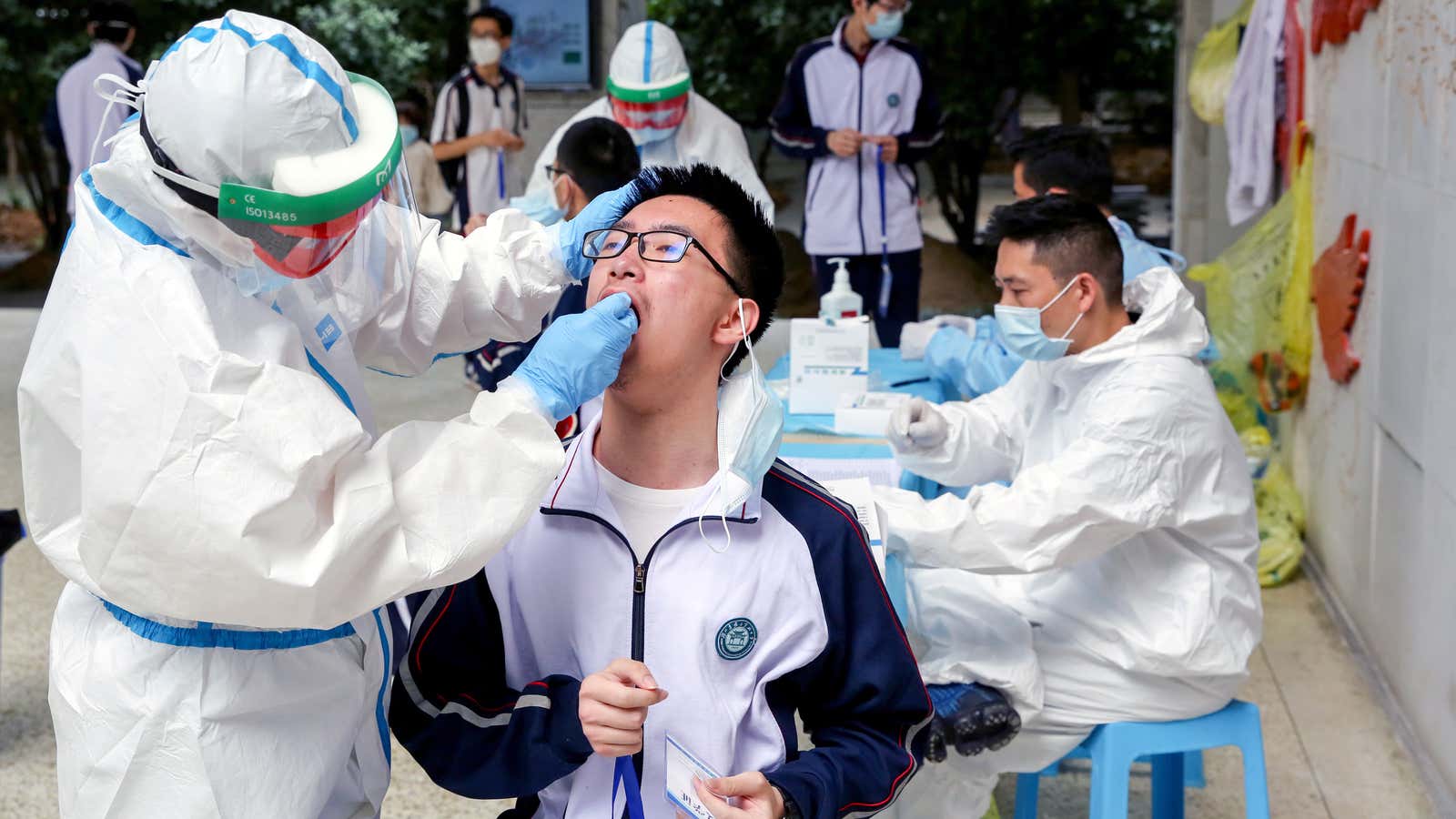Wuhan, the Chinese city where the coronavirus outbreak was first discovered, will conduct city-wide nucleic acid testing for its over 11 million citizens after six new cases were reported for the first time since the city lifted its lockdown in early April.
City authorities issued a document (link in Chinese) yesterday requiring anti-virus teams in all districts to submit detailed plans by today on how they are going to test its residents to see whether they have contracted the novel coronavirus, which has killed 3,869 in the city, according to state-owned media outlet The Paper.
The tests need to be conducted within 10 days and should prioritize people such as those living in older compounds or in densely packed residential buildings, or people originally from outside of Wuhan who are more likely to travel between different places, according to the document, which called the endeavor a “10-day battle.” It is unclear how the department plans to meet the huge volume of testing kits required.
The directive comes after Wuhan reported a new cluster of infections over the weekend. An 89-year-old man, who has not left the city since late January, was confirmed to have the virus on May 9. There were 20 confirmed cases in the man’s compound before, which are thought to be the source of the man’s infection. A day after, five new cases were reported, with all of the asymptomatic patients living in the same compound.
After Wuhan lifted its lockdown in early April, some stringent public health measures (link in Chinese) still remain in place, including requiring residents to have their temperatures taken and their phone “health codes” scanned by community workers when going in or coming out of their compounds. The measures vary between different districts, based on local authorities’ assessments. Wuhan citizens are nevertheless encouraged to go out as little as possible (link in Chinese) except for essential reasons or for going to work. Such measures also continue to be in place to differing degrees in other cities, with Beijing, for example, saying it will normalize and maintain (link in Chinese) prevention and control measures against coronavirus in the long run.
The ambitious plan to test such a large number of people after the discovery of a relatively small cluster underscores how seriously China takes the threat of a second wave of coronavirus infections. Authorities have re-imposed lockdowns in parts of the country’s northeast region in recent weeks, as the area has seen a growing, but relatively small, number of cases, including imported ones from Russia. Shulan, a small city in Jilin province, has been put under a partial lockdown since Saturday, with all non-essential transportation banned for its over 630,000 citizens after it reported 13 locally transmitted cases at the latest count.
